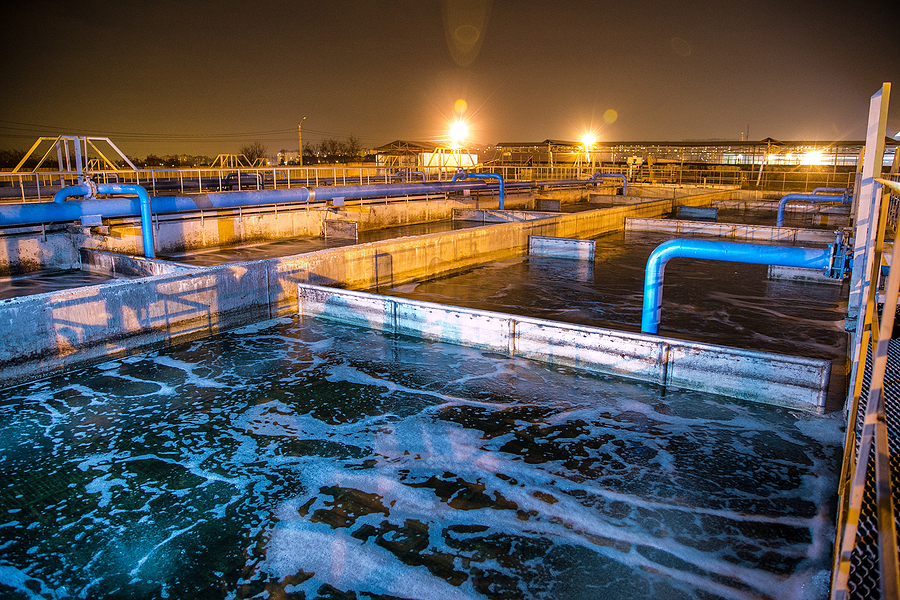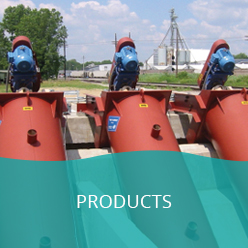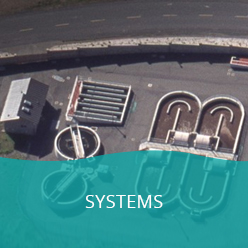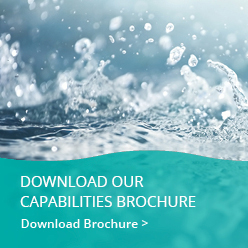Industrial wastewater can contain a variety of different contaminants, including heavy metals, oils, and toxic chemicals. These different contaminants mean that there is a need for specific filtration systems that help with these types of pollutants in industrial applications. Multi-stage wastewater filtration systems are a great way to keep these contaminants in check and ensure that wastewater is free from harmful pollutants. There are many benefits to multi-stage wastewater filtration systems in industrial applications that help to keep up with cost efficiency, environmental compliance rules, and sustainability.
What is a Multi-Stage Wastewater Filtration System?
A multi-stage wastewater filtration system is very similar to a single-stage filtration system, but it brings together multiple types of filtration into one. These various stages help to eliminate multiple variations of pollutants to achieve water purity at a certain level. This type of filtration system is essential for wastewater, which is complex and needs multiple avenues of filtration to get it fully pure in industrial applications.
Different Stages of Multi-Stage Wastewater Filtration System
As mentioned, multiple stages go along with this type of filtration system. This could vary based on the type of wastewater and the desired level of purity, but these stages are often the ones that you’ll find when looking into this type of wastewater system.
Physical Filtration
This type of filtration is often called sediment filtration, and it’s the part in the process that filters out larger pieces of sand, debris, silt, and rust particles. The type of filter that’s used during this stage is a larger-pored filter that helps just to catch these larger particles.
Chemical Filtration
This type of filtration is often called organic contaminant removal or activated carbon filtration. It uses certain materials, such as activated carbon, to absorb chemicals like chlorine and other organic compounds. This helps to improve the taste and odor of the water.
Membrane Filtration
Membrane filtration is used to separate microscopic contaminants based on pore size. It uses a much smaller pore filtration system to achieve this. The multiple areas of this filtration system include microfiltration, which removes bacteria, ultrafiltration, which removes microbials and viruses, and nanofiltration, which removes salts and other organic compounds. Reverse osmosis is another common method used here, which removes dissolved salts and contaminants.
Disinfection
This stage uses chlorine, ozone, or ultraviolet light in order to kill or inactivate pathogens like viruses and bacteria. This is the last stage of the multi-stage wastewater filtration system.
Benefits of a Multi-Stage Wastewater Filtration System for Industrial Applications
There are many different benefits that come with a wastewater filtration system, especially when looking at a multi-stage system for industrial applications. Let’s look at some of the main benefits that come with this type of system.
- Customized Wastewater Filtration: When it comes to wastewater filtration, especially for industrial applications, one of the biggest benefits is that the stages can be customized to the particular needs of the industry. Industrial companies typically have more complex wastewater with a wider range of contaminants within it. Being able to customize these stages and target particular compounds or contaminants in the wastewater is essential due to their complex nature.
- Comprehensive Contaminant Removal: With the variety of contaminants that can be found in the wastewater of industrial companies, there is a need to have a water filtration system that can get rid of these complex contaminants. For industrial wastewater filtration systems, it’s necessary to have a multi-stage system in place that can get rid of everything from small particles, chemicals, and dissolved substances.
- Improved Water Quality: This benefit seems like a pretty standard one for industrial wastewater treatments used in this industry, but that doesn’t make it any less important. The end product of having this type of wastewater filtration is that the end result is much purer, high-quality, and suitable for applications like cleaning, cooling, and manufacturing processes.
- Cost Effectiveness: The upfront cost of implementing a wastewater treatment system, such as a multi-stage system, may be higher, but the overall investment will save you money in the long run. It allows your systems to run more effectively, avoid issues with equipment, and increase the longevity of your industrial equipment.
- Regulatory Compliance: These systems are ideal for keeping up with the Environmental Protection Agency and environmental compliance. They meet or exceed these expectations due to the complex nature of the filtration system, which reduces the possibility of fines, shutdowns, or legal issues due to not meeting these expectations.
What Industries Could Use a Multi-Stage Wastewater Filtration System?
There are many different industries across the world that would benefit from having a multi-stage wastewater filtration system in place. Here are a few examples of these industries that would benefit most from this type of water treatment.
Manufacturing: Industries that work on manufacturing often have wastewater that is complex and filled with a variety of different contaminants, like chemicals or heavy metals.
Power Plants: Power plants use water for cooling and other processes, so having a multi-stage system in place is essential for meeting compliance regulations for power plants.
Food and Beverage: These industries in the food and beverage sector generate wastewater that includes many contaminants from organic matter, nutrients, and other contaminants. Having a complex water treatment in place can help with being able to reuse the water as well for other processes.
Pharmaceuticals and Cosmetics: With this industry, it’s crucial to have a multi-stage system in order to get the maximum filtration for manufacturing, production, and water reuse.
How to Choose a Multi-Stage Water Filtration System
Choosing a water filtration system is essential for industries that need a more complex type of wastewater treatment. There are different aspects that should be looked into before choosing a filtration system that works for your industry to ensure you’re getting the top-quality water filtration for complex contaminants and ensuring that you are meeting compliance standards.
Test Your Water: Always start with testing your water to see what type of contaminants you have inside it, as this will help you to determine how complex a multi-stage system you need.
Identify Specific Needs: Find out what needs you have for the water, as certain types of water and industries may need a different extent of filtration.
Determine the Cost: You should be prepared for the cost of the filtration system by looking at the initial cost and the ongoing cost of the filtration system.
Familiarize Yourself With Filters: You should become more aware of the type of filters, what they do, and how they can help you with your particular needs.
Choose a System: Lastly, you will look into different systems to find what will work best for your industry after looking at all of these areas.
Getting a Multi-Stage Wastewater Filtration System
Industrial applications need a multi-stage wastewater system that is used to get rid of complex contaminants often found within these industries. Knowing the differences and what you may need for your particular industry can ensure that you are meeting compliance standards while giving you top-quality filtration for your needs.
Our filtration systems at Lakeside Equipment are specifically made for the needs of industrial applications. They are complex, and we offer a variety of different equipment services that can fit the needs of your business. Whether you’re looking to upgrade your system or add in a new multi-stage wastewater filtration system, at Lakeside Equipment, we’ve got you covered. Contact us today.








